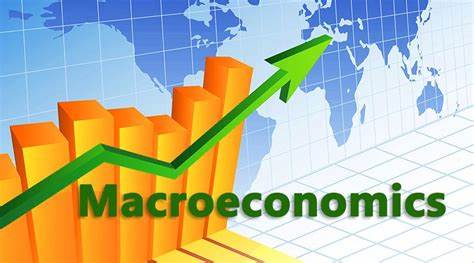
Course Title: Macroeconomics
Module Nr:: 15
Module Type: Compulsory
Module teaching methods: Seminar
Module language: English
Module availability: Each Semester
Module coordination: Prof. Dr. Marco Sunder
Module Lecture: Dr. rer.pol. Mesfin Mulugeta Woldegiorgis (mesfin.mulugeta-woldegiorgis@fb3.fra-uas.de), Faculty 3
Department: International Business Administration (B.A.)
ECTS-Credit Points (CP) / Workload (hours): 5 CP / 150 hours
Semester periods (hours) per week: 4 SWS
Class hours : 60h
Total time of examination incl. preparation : 30 h
Total time of individual study : 60 h
Total time of practical train-ing : 0
Prerequisite: None
Module examination: Written examination (90 minutes)
Learning outcomes and skills:
Students will be able to:
- apply economic thinking and mathematical methods to analyze macroeco-nomic problems;
- explain the relations between monetary and real variables at the national and international level;
- understand the macroeconomic importance of financial markets;
- analyze national and international economic policies;
- to deal critically with developments in the economy, society, and the envi-ronment (climate change) Students will possess the following competencies:
- economic thinking in global contexts;
- understand and apply mathematical models;
- use of media and specialized literature to form their own judgments.
Course Contents:
- Introduction to Macroeconomics
- Overview of the topics and methods of macroeconomics.
- Data basis and national income accounting
- The Macroeconomy in the Short Run
- Derivation of aggregate demand in the IS-LM model
- Integration of more complex models of the financial market
- Analysis of business cycle fluctuations and the role of monetary and fiscal policy
- The Macroeconomy in the Medium Run
- Unemployment and Inflation
- Inflation and central bank policies
- Analysis of shocks (financial crises, pandemics, wars, commodity prices) in terms of business cycle, unemployment and inflation
- The Macroeconomy in the Long Run
- Empirical Findings
- The Neoclassical Growth Model
- Importance of saving and technological progress
- Challenges: Climate change, inequality, sources of technical progress
Recommended reading:
- Blanchard, O./Amighini, A./Giavazzi, F.: Macroeconomics: a European perspec-tive, London.
- Mankiw, N. G.: Principles of macroeconomics, Boston. Textbooks should be the most current edition.
- Lecture notes will be provided by the lecturer progressively